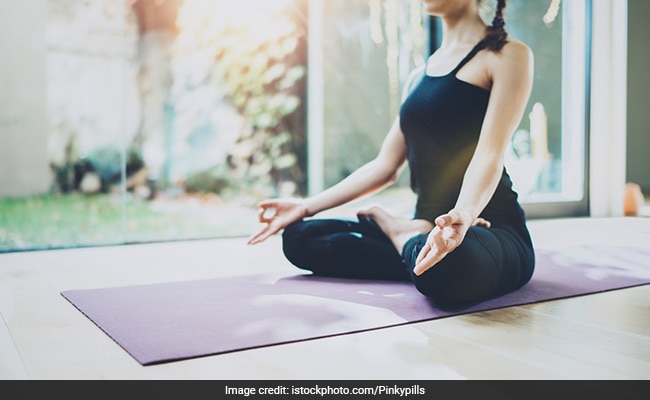From parade.com
Writer Ramona Reed shares what works
I've had chronic insomnia since I was a child. My earliest memories are of me laying in bed trying to fall asleep. I would make up stories, trace the patterns of my wallpaper with my fingers, or create shadow puppets of dinosaurs on the walls for hours before I was finally able to fall asleep. One of my biggest issues? After a whole day of feeling groggy, I finally felt awake at bedtime.
Mornings were a very frustrating time in my house growing up. I don’t know if I’ve ever woken up energized or excited. If left on my own, even as a very young kid, I could sleep until noon. But often, I wasn’t allowed to sleep in after 10 a.m.—so I would find odd places to nap throughout the day, little nooks and corners that felt safe.
I felt like I was in fight or flight mode in the mornings as a child. I remember having meltdowns because I was so confused. I would also feel physically sick and nauseated. I would get chills and feel like I was going into shock if I was abruptly woken up.
Unfortunately, none of these symptoms were ever looked into. From the outside, I just looked like a lazy kid who was bad in the mornings and lacked self-discipline since I chose to stay up too late every night—which of course was far from the truth.
Once I got to college and I was able to have a more flexible morning schedule, I felt a lot more rested. But I still struggled with nightmares, restless legs, ADHD procrastination and chronic pain.
As an adult, my insomnia comes in waves. I’ll have months of restful sleep, and then suddenly it’s back. It’s definitely tied to my stress and physical health. I notice when I’m under more stress, it’s harder to fall and stay asleep.
When I’m having flare-ups from my chronic health conditions, pain usually keeps me awake. I'm autistic and I also have ADHD and dyspraxia, a neuro-developmental condition that affects gross motor control and spatial awareness. I didn't find any of that out until the year I turned 30, in 2020, and my insomnia journey is tied to that discovery.
When going through the various ADHD and autism traits, my therapist mentioned sleep disturbances. While I've always had a variety of sleep issues, I thought everyone had difficulty sleeping. I thought it took everyone an hour or more to fall asleep, and that waking up four times during the night was typical.
Knowledge is so valuable. Now that I have a name for these things, I can let go of the internalized message, and realize that it’s not anything that’s my fault. It’s just how my brain and body work.
When I can’t sleep, here are five things that I’ve found help most:
Supplements
I take a few different supplements. One I frequently take is Sleep & Recover by Nature Made, and it's the only one that's ever worked for me. It's a lower dose of melatonin with a blend of l-theanine and magnesium.
When I have restless legs due to low dopamine, I take five drops of Anima Mundi's Happiness Tonic drops. It's a blend of Muncuna, Albizia bark, Rhodiola root, Ashwagandha root and St. Johns Wort that really helps me fall asleep. However, too much of it makes me energized and wide awake, and it took some trial and error, but now I can say it works really well for me.
A Weighted Blanket or Eye Mask
Having a weighted blanket really helps me. Being autistic, I have sensory issues. A big one I experience is with any vibration. I can acutely feel vibrations from any car outside, kitchen appliance, air conditioning, etc. So the weighted blanket helps that sensory issue from becoming overwhelming.
When I don’t have my weighted blanket, a weighted eye mask is also helpful. Just feeling that extra pressure helps me relax the muscles in my face.
Breathing and Mindfulness Techniques
I also have PTSD, and often when it’s dark and the distractions of the day are gone, my mind relives or tries to analyse events in my life that were traumatic. One way I help to stop this is six-four-six breathing. Breathe in for six counts, hold for four, exhale for six counts. Focusing on the repetition helps, as well as the physiological effects of slowing down your heart rate.
If that doesn’t work, I have two different techniques to stop ruminating.
I tell myself, “Now isn’t the time to worry about this.” I make a specific time the following day to sit down in a journal or talk to someone and work it through. Just knowing that I’ve got that specific time set aside helps with the rumination. I’m listening to myself and not pushing aside the fear I feel, I’m just being firm with my boundaries.
If that doesn’t work, I try to ground myself to stop the spiral. I list every silly nickname I’ve ever given my dog. Listing is a great technique that helps you focus on something else. I find the sillier the list the easier it is to lose interest in what you’re ruminating on.
Acceptance
Acceptance is a major thing. I don't let myself feel guilty for having a different sleep cycle. Growing up, I was shamed for needing extra sleep. Now, I know that it's not my fault. I'm not lazy—my brain just works differently, and that's okay.
I know that stressing over how little sleep I’m getting, or how long I’m laying in bed waiting to fall asleep, only makes my insomnia worse.
Sometimes, acceptance looks like leaving the bed if I'm just laying there not sleeping for hours. I just let myself be okay with being awake. I write or read for a while, maybe drink some tea until I start to feel sleepy again. I tell myself it’s perfectly fine if I need to take a nap or sleep in late during the day. It’s not a sign of failure or laziness—it’s just what my body needs.
I also set meetings for later in the day. If I have an alarm set for early morning, I spend the entire night waking up every hour to make sure I didn't sleep through it. Now, I schedule any important things mid to late afternoon so I know I won’t sleep through it. This obviously won't work for everyone—but if you're able to, I highly recommend it.
Finally, listen to your body. Do what's best for you. I'm such a big advocate of doing anything you possibly can to make your life more comfortable. Use your vacation days or weekends to rest, and take naps without guilt. Do something that creatively engages your mind like painting, making collages or putting together puzzles—something for your brain to have fun working out so you don’t focus on the stress that comes with insomnia. Spend time outdoors, collect cool rocks, sit on the ground and make a flower crown. Let your inner child feel some joy. All of that affects how well you sleep, too.
Finally, listen to your body. Do what's best for you. I'm such a big advocate of doing anything you possibly can to make your life more comfortable. Use your vacation days or weekends to rest, and take naps without guilt. Do something that creatively engages your mind like painting, making collages or putting together puzzles—something for your brain to have fun working out so you don’t focus on the stress that comes with insomnia. Spend time outdoors, collect cool rocks, sit on the ground and make a flower crown. Let your inner child feel some joy. All of that affects how well you sleep, too.
https://parade.com/health/chronic-insomnia-patient-journey




